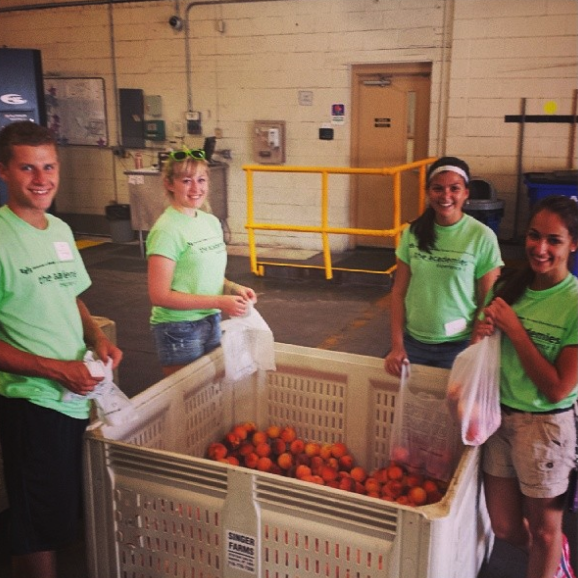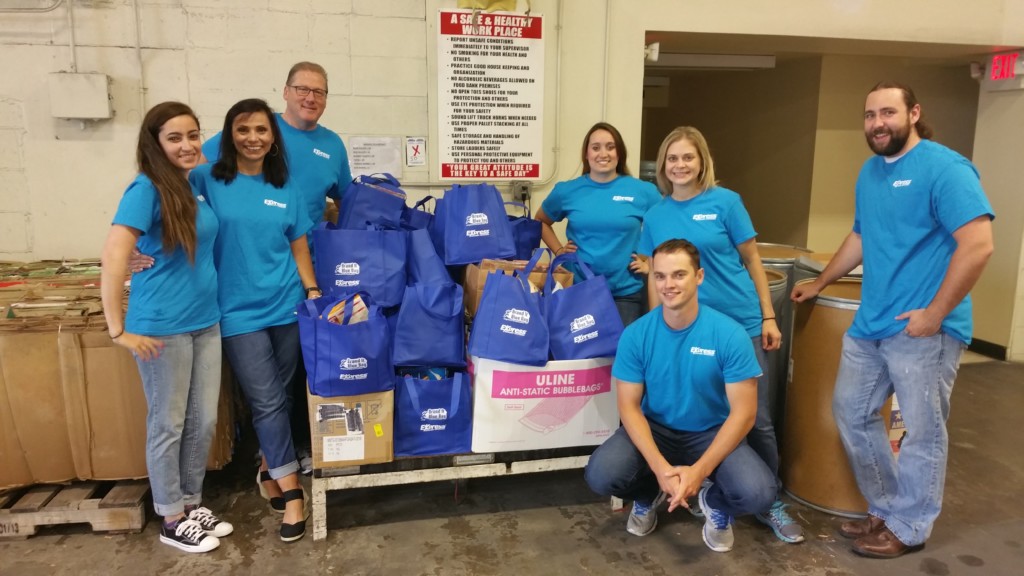Nov 9, 2016 – You might think hunger is an issue only faced by people in faraway countries, but it’s a large problem here in the United States — including Western New York.
This month, we’re doing our part to fight the problem of food insecurity locally by hosting a food drive in our apartment communities. All food items we collect will be brought to the Helping Hands Food Pantry in Buffalo.
What is Food Insecurity?
The USDA defines food insecurity as a state in which “consistent access to adequate food is limited by a lack of money and other resources at times during the year.”
People facing food insecurity do so for a variety of reasons. These could include the loss of a job, inadequate wages, injury, illness, lack of access to SNAP (food stamps), and costs associated with unexpected hardships.
Many people are forced to make the hard choice between food and utilities, housing or important medications, and end up food insecure as a result.
How Many People are Food Insecure?
According to Feeding America, in 2015, 42.2 million Americans lived in food insecure households, including 29.1 million adults and 13.1 million children, and 13 percent of households (15.8 million households) were food insecure.
Just within the Food Bank of Western New York’s service area (Cattaraugus, Chautauqua, Erie and Niagara counties), 180,670 people – 13.4% of the overall population – are food insecure. Of those people, 63,280 are children, which 22.2% of the child population being food insecure.
These sobering statistics will probably surprise you — which is why there needs to be more of a focus on the problem of hunger locally and nationally.
How You Can Help

According to the Food Bank of WNY, in any given month, they assist as many as 129,000 individuals, including more than 44,000 families, 45,000 children and nearly 17,000 seniors. In Erie County alone, the Food Bank serves 88,520 people per month.
- Donate to Feeding America. Right now, for every $1 you donate, Bank of America will match your donation with $2 more. Donate here.
- Donate directly to the Food Bank of WNY, which serves the 1 in 7 people in Western New York that struggle with hunger. Learn more about them on their website. You can also drop off food items at their office at 91 Holt Street, Buffalo, NY 14206.
- Volunteer with the Food Bank of WNY. Volunteers are needed for helping with food bank operations, including sorting and repackaging food, as well as helping at fundraising events.
- Volunteer with the Helping Hands Food Pantry in Buffalo. Call Luis Clay at 716-812-3461 or sign up at the United Way’s website.
- Host a food or fund drive in your workplace, school or community. Every dollar and food item raised can help support a member of the community who is battling hunger. This toolkit explains how to organize, promote and run your food or fund drive and includes the Food Bank’s most-needed food items.

- Raise awareness. This is a crucial part of fighting hunger. If people don’t know it’s an issue, they can’t help. You can advocate on behalf of people who are food insecure by:
- Contacting your elected officials about hunger issues that affect your community and asking what they’re doing to combat the problem.
- Writing a letter to the editor of your local newspaper to raise awareness about hunger and how to help.
- Posting and sharing stories about hunger and relief efforts on social media and recruiting friends to get involved.
- Talking about hunger with your family, friends, co-workers or community groups.
Fighting Food Insecurity in WNY
While the problem of food insecurity is much bigger than our food drive, it’s crucial to take steps on the local level to assist people in your own community.
And if you’re struggling with food insecurity yourself, don’t be afraid to reach out for assistance. You can use this locator to find a food pantry or soup kitchen near you.
We hope you’ll consider joining us in helping to make the holidays better for our community’s food insecure men, women and children by donating, volunteering and advocating on their behalf.
Every one of us can have an impact — and the more people that are helped on the local level, the better we can fight the problem of hunger nationally and worldwide.

 Fair Housing Notice
Fair Housing Notice 